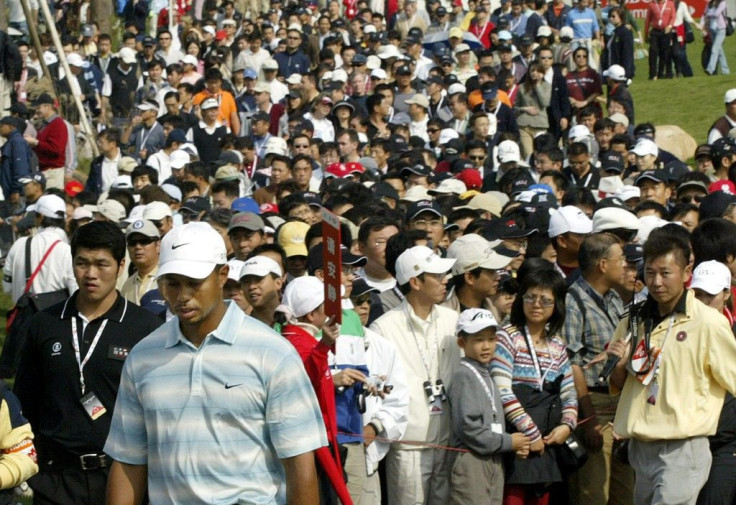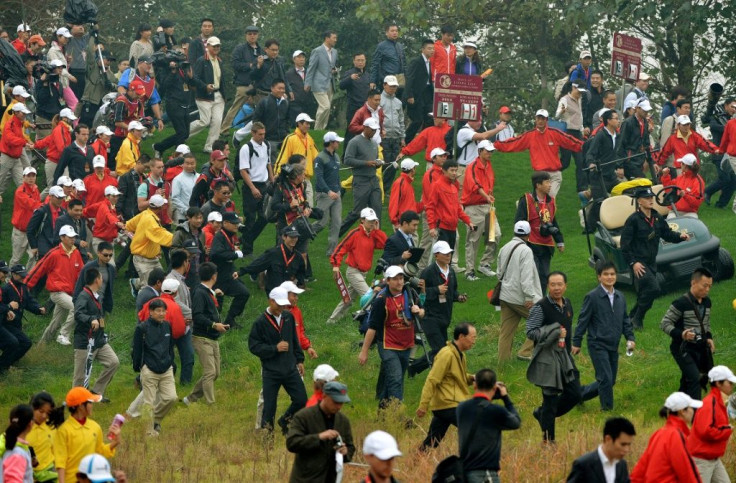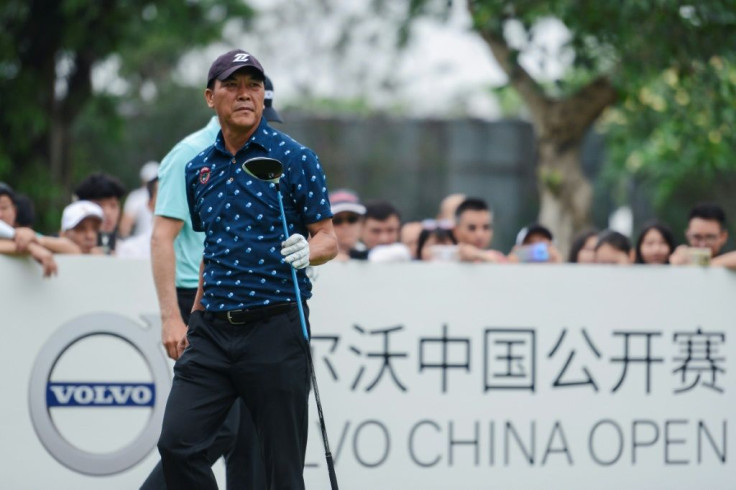Baby Steps, Boom Times And Tiger: Pro Golf In China Marks 25 Years
Twenty-five years ago professional tournament golf took its first steps in China and, despite a few stumbles, paved the way to establishing the sport in a country where it was once banned as a "bourgeois pursuit for millionaires".
An unlikely alliance between the China Golf Association and a Swedish carmaker with an eye on an emerging market resulted in a tentative toe being dipped into oriental waters in April 1995 for the first Volvo China Open.
China's first professional golfer, Zhang Lianwei, who had given up his amateur status just a few months before, finished third behind Paraguay's Raul Fretes in a field that contained 1988 US Masters champion Sandy Lyle.

Later that year, millions across the world tuned in to see Davis Love III and Fred Couples lift the 1995 World Cup of Golf for the US at China's newly opened Mission Hills resort.
Zhang and another new pro, Cheng Jun, represented China and finished a monster 45 shots adrift, 27th in a 32-nation field.
But it mattered not. China was on the golfing map and it has stayed there ever since, attracting the game's biggest stars and multi-million dollar prize pots, and nurturing a handful of world-class players.

Zhang was already 30 in 1995 but these days Chinese golfers start young, sometimes swinging toddler-sized clubs from the moment they can walk.
Guan Tianlang became the youngest player to make the cut in the US Masters as a 14-year-old amateur in 2013.
"It's a different era and a different environment for these kids coming through now. I started playing golf at the age of 20," Zhang told AFP.

China's first course had opened only 12 months before Zhang started playing, when Mao Zedong's ban on golf was lifted. Now the country has more than 500.
Zhang won the China Amateur Open three times, but his professional ambitions met a great wall of bureaucracy.
"I had to wait a very long time to turn professional because of procedures with the China Golf Association and the government," said Zhang, the only player to have competed in every Volvo China Open.

It was worth the wait for the pioneering Zhang, who became the first Chinese player to win a European Tour event in 2003, and the first from his country to play the US Masters in 2004.

Rapid economic growth, meanwhile, was attracting sponsors keen to push brands in a country where, despite Mao's best efforts, golf was largely a game for the business elite.
BMW moved its flagship Asian Open from Taiwan to Shanghai in 2004 and the next year the European Tour co-sanctioned the Volvo China Open.
Also in 2005, Tiger Woods drew huge galleries to a new $5 million invitational, the HSBC Champions in Shanghai.
In 2009 it was elevated to World Golf Championship status and its roll of honour includes some of the game's greats -- Phil Mickelson, Dustin Johnson, Justin Rose and last year, world number one Rory McIlroy.
The WGC-HSBC Champions now carries the largest prize fund of any tournament outside the majors at $10.25 million.
Other megabucks events followed, including the $7 million BMW Masters in Shanghai, while golf's readmission to the Olympics saw the CGA embrace partnerships with the European Tour and US PGA Tour to give Chinese golfers a route to the game's top levels.
It all helped develop players such as 2014 PGA Tour China Series order of merit winner Li Haotong, who went on to be third at the 2017 Open Championship at Royal Birkdale behind Jordan Spieth.
But the boom also spawned many gaudy exhibition events -- including the almost farcical "Duel at Jinsha Lake" between Woods and Rory McIlroy in Zhengzhou in 2012, which was designed to promote luxury homes.
While elite guests arrived by helicopter, Ferrari or Rolls-Royce, a mob of less well-heeled spectators invaded the driving range to steal balls as souvenirs.
Chaos ensued as thousands broke through the ropes and swarmed across the course to take close-up photos, some being rugby-tackled by police.
A wide-eyed Woods remarked it had been "not a usual Monday". McIlroy was similarly diplomatic: "I wouldn't say it was crazy out there. The word I would use is 'enthusiastic'."
The ruling Communist Party again cracked down on golf in 2015, banning its 88 million members from accepting club memberships and closing down more than 100 illegally built courses as part of an anti-corruption drive.
It later reversed course by giving the sport the thumbs-up, saying Party members were free to play in their own time, and as long as they paid their way.
This year's Volvo China Open, which should have been held last weekend, was lost to the coronavirus pandemic ending an unbroken run since 1995. Who knows what the next 25 years have in store?
© Copyright AFP 2024. All rights reserved.





















